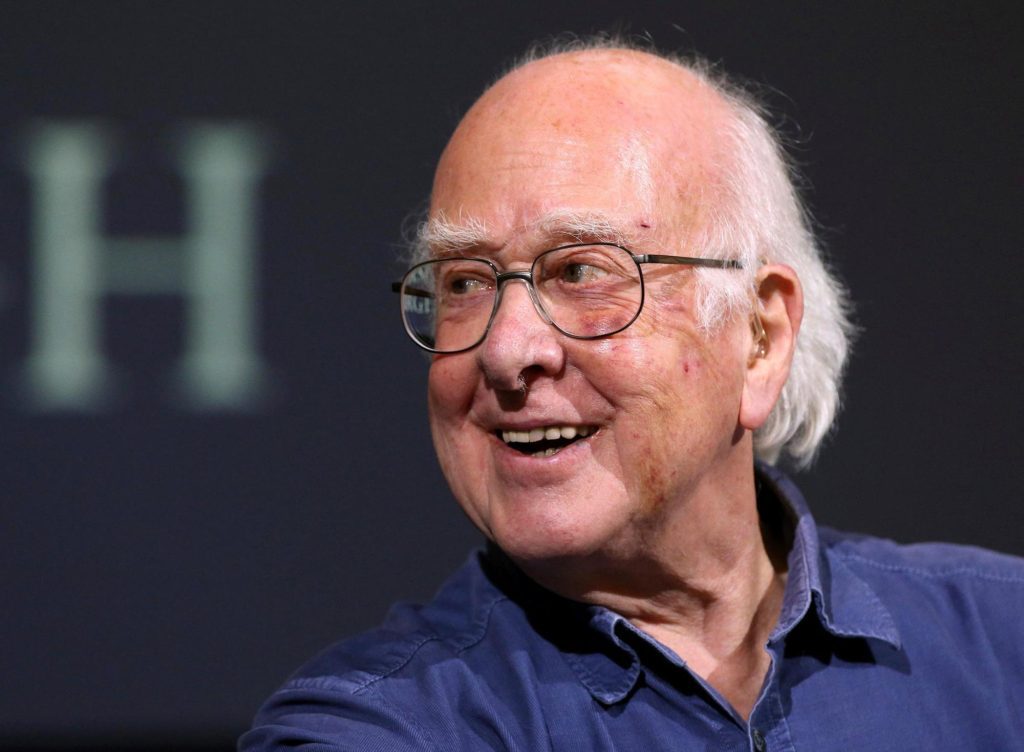By DANICA KIRKA, JILL LAWLESS and JAMEY KEATEN (Associated Press)
The University of Edinburgh announced on Tuesday that Nobel prize-winning physicist Peter Higgs, who proposed the existence of the so-called “God particle” that helped explain how matter formed after the Big Bang, has died at 94.
The University of Edinburgh, where Higgs was an emeritus professor, reported that he died on Monday after a brief illness.
In 1964, Higgs predicted the existence of a new particle, known as the Higgs boson, theorizing that there must be a sub-atomic particle of certain dimension that would explain how other particles — and therefore all the stars and planets in the universe — acquired mass. Without something like this particle, the set of equations physicists use to describe the world, known as the standard model, would not hold together.
Higgs’ work aids scientists in understanding one of the most basic mysteries of the universe: how the Big Bang created something out of nothing 13.8 billion years ago. Without mass from the Higgs, particles could not clump together into the matter we interact with every day.
However, it took nearly 50 years for the existence of the particle to be confirmed. In 2012, scientists at CERN, the European Organization for Nuclear Research, announced that they had finally found a Higgs boson using the Large Hadron Collider, the $10 billion atom smasher in a 17-mile (27-kilometer) tunnel under the Swiss-French border, marking one of the key breakthroughs in physics in decades.
The collider was largely designed to discover Higgs’ particle, producing collisions with extremely high energies to replicate some conditions present in the trillionths of seconds after the Big Bang.
Higgs received the 2013 Nobel Prize in Physics for his work, sharing it with Francois Englert of Belgium, who independently developed the same theory.
Vice Chancellor Peter Mathieson of Edinburgh University described Higgs, who was born in Newcastle, as “an extraordinary individual – a truly talented scientist whose vision and creativity have enriched our understanding of the world around us.”
“His groundbreaking work has inspired thousands of scientists, and his legacy will continue to motivate many more for generations to come.”
Higgs, born in Newcastle, northeast England on May 29, 1929, studied at King’s College, University of London, and earned a PhD in 1954. He spent much of his career at Edinburgh, becoming the Personal Chair of Theoretical Physics at the Scottish university in 1980. He retired in 1996.
One standout moment in Higgs’ career took place during the 2013 presentation at CERN in Geneva, where scientists, in technical terms based on statistical analysis incomprehensible to most laypeople, confirmed the boson’s existence. Higgs became emotional and wiped his glasses as he teared up in the stands of a CERN lecture hall.
“There was an emotion — a kind of vibration — going around in the auditorium,” stated Fabiola Gianotti, the CERN director-general, to The Associated Press. “That was just a unique moment, a unique experience in a professional life.”
She said that Peter was a very emotional person. He was very kind, very friendly, and always interested in what others had to say. He was good at listening to others and was open, interesting, and interested.
Joel Goldstein, from the School of Physics at the University of Bristol, said that Peter Higgs was a quiet and humble man who never seemed comfortable with the fame he achieved, even though his work forms the entire modern theoretical framework of particle physics.
Gianotti remembered how Higgs often reacted negatively to the term "God particle" for his discovery. She mentioned that he did not like this kind of definition and it was not his style.









